This Viral Photo Exposes a Side of Racism We Rarely Talk About

By:
A photo of dark skinned women has prompted a conversation about an under-discussed aspect of racism that impacts the whole globe: colorism.
The Facebook page "The Uncanny Truth Teller 2" posted the photo on April 24 with the caption "the faces of India they won't show you." The photo has since been shared more 40,000 times.
The actual origin of the women is unclear. Facebook user Gabriel Chan Zhenxuan said that the women live in Singapore.
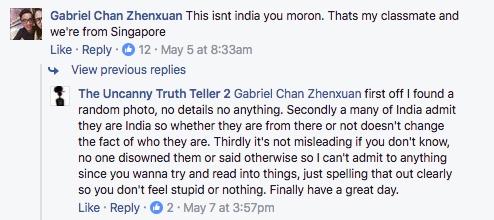 Facebook/The Uncanny Truth Teller 2 - facebook.com
Facebook/The Uncanny Truth Teller 2 - facebook.com
Regardless of where the women live, the post started a conversation about colorism in East Asian and Southeast Asian countries.
Colorism is the idea that lighter skin tones in a ethnic group are more desirable.
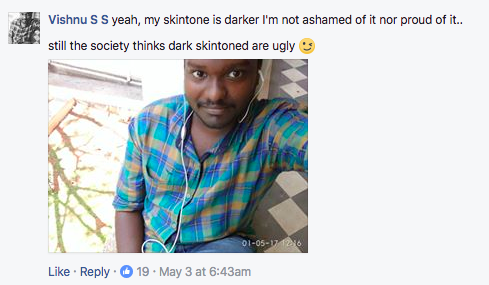 Facebook/The Uncanny Truth Teller 2 - facebook.com
Facebook/The Uncanny Truth Teller 2 - facebook.com
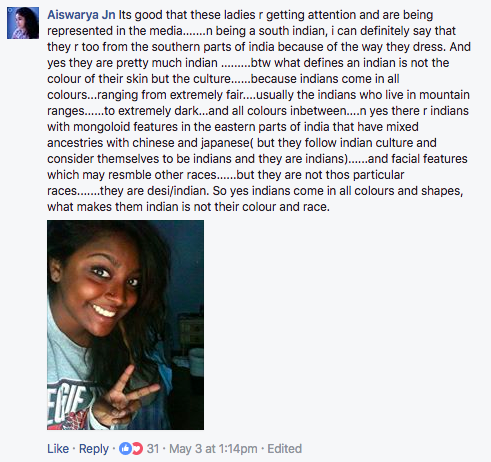 Facebook/The Uncanny Truth Teller 2 - facebook.com
Facebook/The Uncanny Truth Teller 2 - facebook.com
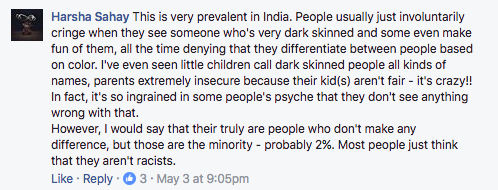 Facebook/The Uncanny Truth Teller 2 - facebook.com
Facebook/The Uncanny Truth Teller 2 - facebook.com
The Indian English-language newspaper The News Minute wrote that the post is a "refreshing change from the usual color prejudice" because it focuses on dark-skinned women, rather than fair-skinned women who typically dominate Indian media images.
"Indians are obsessed with 'fairness,'" wrote News Minute. "Our movies, fashion industry, advertisements, the nauseating matrimonial ads looking for 'fair' women, they all, directly or indirectly tell us one thing: Fair women are beautiful. Fair women will be successful. Fair women will get good partners. The paler the better."
The prejudice against darker skinned Singaporean women created news headlines in 2016.
A photo project about women across the globe by Romanian photographer Mihaela Noroc caused backlash in March of last year because the woman representing Singapore wasn't deemed light enough. The woman, Nadia Rahmat, is actually a model for Marc Jacobs.
Facebook users called Rahmat "ugly," and said the choice was an "error," according to Coconuts Singapore. However other Facebook users said the ugly accusations smacked of colorism. "There's such a subltle hint of racism by the way most of you react when you see this brown girl under 'Singapore,' said a user according to the publication.
Like the U.S., countries like India, Pakistan, and Singapore have a history of colonial rule that could influence their beauty standards.
Radhika Parameswaran, a professor in the Media School at Indiana University, gave an interview about colorism in Claremont McKenna College's Asia Experts Forum.
She said that along with the Caste System, a class structure that was determined by birth, and globalization, it's likely that British colonialism has played a role in India's colorism. "I would certainly say that colonialism could have played a role. Just as slavery played a role in perpetuating skin color hierarchy in the United States, European colonialism and ideas of white supremacy could have played a role in fueling colorism in India," she said. Colorism does not mean that Indian people believe that white people are superior in every aspect of life, rather than white supremacy could affect beauty standards, according to Parameswaran.
ATTN: talked to two women about colorism in Asian cultures.
Hufsa Kamal is 27 years old and she lives in Washington, D.C.
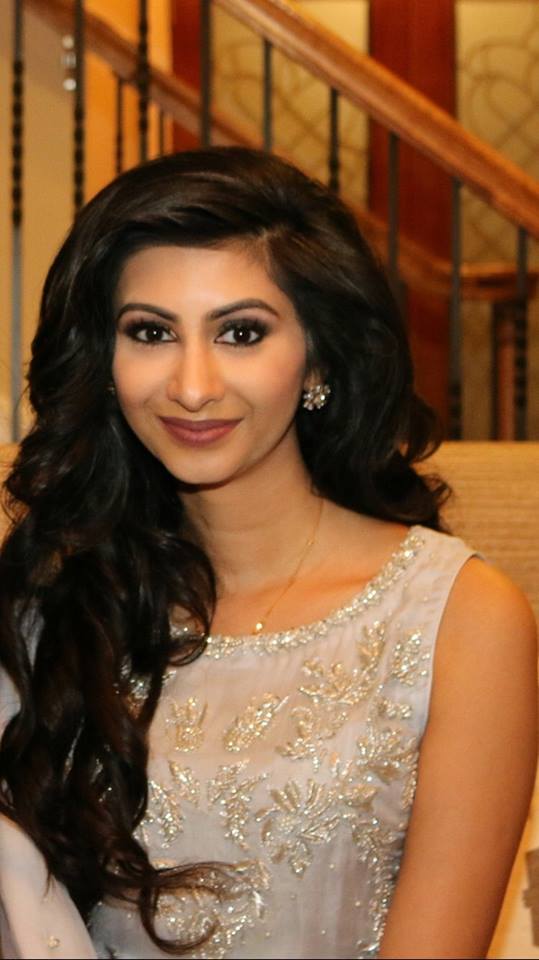 Hufsa Kamal
Hufsa Kamal
Kamal is of Pakistani descent and she said that colorism is very common in her culture. "Sometimes I feel like Pakistanis invented colorism. It's very prevalent," she said. "I see it in TV commercials for skin whitening creams and I see it in my own Pakistani community."
Kamal said that even though she doesn't agree with the ideology she's succumbed to the pressure of colorism. Kamal said that when she was a child she experimented with skin bleaching creams but her father, who is a doctor, made her stop because of the potential dangers. She said that even now the pressure of beauty standards can influence her.
"I'm currently on vacation in the Caribbean and have been wearing big hats just so my face doesn't get a lot tanner," she said. "I'll even buy foundation a shade lighter than my skin tone. It sounds hypocritical, but this is the case with so many of the Pakistani and Pakistani-American women I know."
However, Kamal thinks that young people are changing beauty standards.
"People's mentalities are slowly changing. You can be beautiful and have darker skin," she said. "This isn't our grandparents' generation, in which the only standard needed to be met to be considered beautiful was to have fair skin."
Yasmin Aminuddin is a 52-year-old Indian mother who lives in Massachusetts.
She said she believes old ideas about the superiority of light skin actually do persist in the younger generations.
"For a long time things have not really changed even in the younger generation," she said. "They want a fair complexion and things haven't really changed that much even in this century. Indian people are sort of obsessed with that." Aminuddin said that the pressure mainly focuses on women and young girls.
Very young girls are often given potentially damaging messages about skin color.
"A small girl, even if she is a little dark they will use tumeric and milk to try to white wash her," she said. "It is not good for the child's self esteem to tell her 'no one will marry you because you're dark.'"
